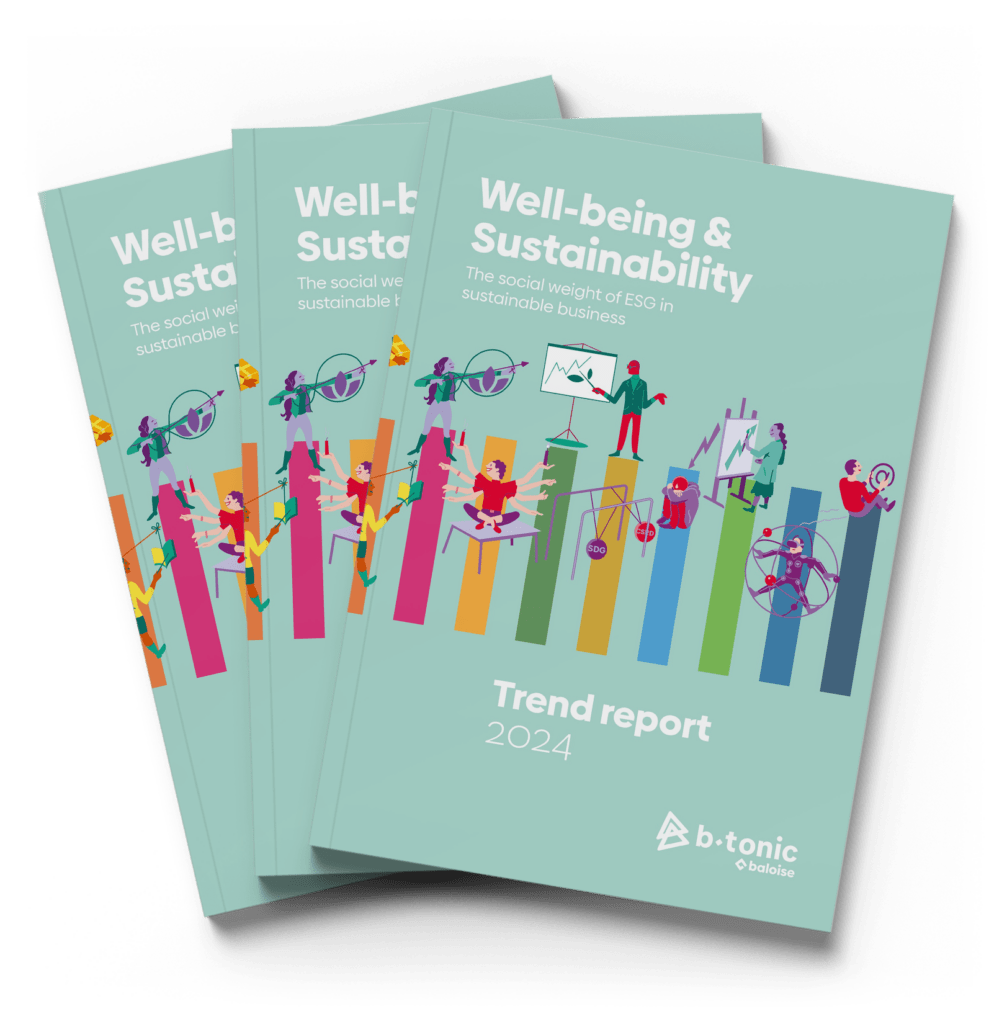Our country has currently almost 500.000 long-term disabled employees. According to estimates, about 10% of them want to go back to work, but they often do not know how. With the Terug naar Werk’ (TNW) plan, the government wants as many willing to work disabled people to go back to work. Companies that have too many long-term absent employees are to be fined. The set of ambitious measures comes into force 1 January 2023.
Today the employer keeps paying an employee that cannot work due to health problems during the first month. After that month, the employee falls back on maximum 60% of their last earned pay, paid for by health insurance. In our country, there are nearly 500.000 long-term disabled employees, i.e. employees that have been unfit to work for over a year. Needless to say that this costs the country an arm and a leg and is a chronic societal problem.
The price tag
According to recent numbers by the RIZIV/INAMI (National Institute for Health and Disability Insurance, ed.) between 2016 and 2020, the amount of long-term disabled people due to burnout and depression increased with 38,72%: +41,50% for depressie, +32,53% for burnout. In 2019 we spend more than 1.5 billion euros on benefits for long-term disability caused by depression or burnout.
SD Worx calculcated absenteeism in Belgium costs approximately 1100 euro a full-time employee every year. This was calculcated based upon the total amount of employees in the company, not of absent employees. For an organisation with 100 employees, this means a cost of 110.000 euro. And then we have not even mentioned the large amount of indirect costs, such as productivity loss, replacement cost, the additional workload for the colleagues etc.
The good news is that international research shows that approximately 10 percent of absent people does want to go back to work and is able to. In particular for that group, Terug naar Werk is supposed to remove the hurdles to reintegration into the job market. From the start of next year, the project is deployed, but first, 40 Terug naar Work coordinators are appointed this year, as health insurance employees. Next year it should be 60. In year one, around 18.000 long-term disabled people should go to back to work. Later on, it should be around 24.000 a year.
Fine for employers
The TNW measures function as a double-edged sword. First and foremost, it mostly focuses on employer accountability. Companies – with 50 employees on average – with a higher than average influx of long-term disability among their employees (younger than 55 years old and at least 3 years on the payroll of that company) will have to make a specific employer contribution of 0,625% on the total of quarterly wages (so 2,5% on a yearly basis).
Based upon the first simulations, around 190 companies should pay a quarterly contribution of globally 1,275 million today. The first notices will be sent out in September or October 2022 at the latest (immediately after the publication of the regulatory texts). Their first contribution is calculated in the second quarter of 2023.
In addition, TNW is also committed to counselling of incapacitated people. Research confirms that it is important to start as soon as possible with ‘working on work’ when employees fall ill, as this improves the chance of a smooth and sustainable reintegration into the job market. That is why the counselling programme takes centre stage in the TNW plan. In concrete terms, someone that has been unfit for work for 10 weeks receives a questionnaire. The absentee is supposed to make an estimate of the severity and duration of his/her/their situation and possibilities of job resumptation. During touch-points with the advising mutuality doctor and the ‘Terug naar Werk’ coordinator, they look into which practical support is required for an adjusted employment.
An additional incentive is provided as well: if the absentee does not respond to these invitations and does not provide a substantiated reason, 2,5% of benefits are withheld. The person in question remains in charge: from the moment on that there is an answer, the withholding ends.
Societal win
Aside from the cost that long-term disability brings, there is an important advantage for the employee to be gained when he or she goes back to work. Research confirms that a ‘good’ job, tailored to the possibilities and wishes of the employee, positively affects the employee’s mental health. People who work and feel valued because they got to make a positive contribution, contribute to the well-being of all citizens. The societal win is big.
Companies are realising more and more that it is crucial to organise work in such a way that employees do not fall absent. To HR managers, managers and entrepreneurs, employee well-being will be a top priority in the upcoming years. As evidenced by research of SD Worx in 14 European countries, among which Belgium was one. The reason is self-evident: happy and healthy employees are motivated and … fall absent less often.





